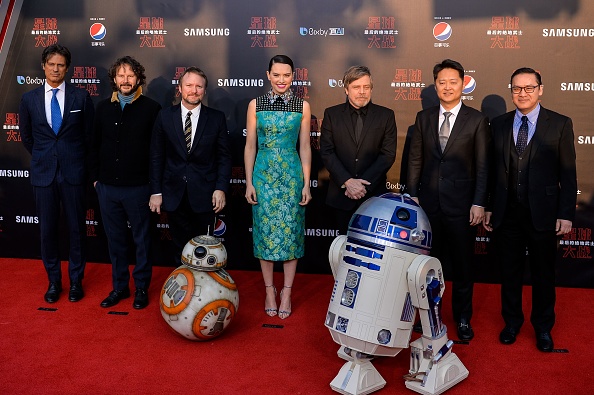One of my favorite films is Misery, the thriller based on the 1987 Stephen King novel of the same name. It’s about a popular author named Paul Sheldon, played by James Caan, who after getting into a car crash gets rescued by his self-proclaimed number-one fan Annie Wilkes, played by Kathy Bates. While nursing Paul back to health, Annie learns he’s killing off the main character in her favorite series of books written by him. Enraged, she holds him in captivity and forces him to write a new book where the character lives.
According to King, Annie Wilkes had always been his favorite character he’d ever written. He had always claimed the story came from three different sources in his life: his drug and alcohol abuse in the ‘80s, crazy fan reactions from his past novels, and a dream he once had while flying across the Atlantic. Annie Wilkes is the quintessential representation of when loving fans go hysterical whenever their favorite piece of art diverges in content in an unexpected or unwanted way. This is especially true in the online culture of toxic fandom today.
ON AN INTERNET FAR, FAR AWAY…
Have you ever met a Star Wars fan? Of course you have, you probably are one. Star Wars needs no introduction. In its 40+ years of existence, the franchise has managed to capture the imaginations of many fans and aspiring filmmakers alike, almost like a cult of sorts. But everybody remembers when Episode I: The Phantom Menace harshly divided fans over the execution and supposed detriment of a beloved film series. And if you think this will be another article which heavily dissects everything that’s wrong with the Star Wars films, you’re mistaken. Because instead, this will be my journey into dissecting what is wrong with fandoms today. And it extends way past Star Wars.
There’s been a sense of entitlement and ownership when it comes to certain popular properties, particularly in the 21st century. With the rise of the internet, fans have been encouraged to build communities online to share their views and talk about how much a certain film or show has meant to them in their lifetime. Most of it comes from childhood nostalgia as well. But it does have a dark side. With that comes the backlash whenever there’s even the slightest of disagreements. It doesn’t matter what the context is, what matters is the reaction when not everyone is on the same page. Then it leads to attacking those who have their own views and opinions. Which leads to toxic fandom.
ROOT OF THE GEEK
In order to understand toxic fan culture, one must understand geek culture. If you have ever found a safe space for liking certain films, cartoons, TV shows, video games, comic books, etc. and didn’t feel like an outcast, you can consider yourself a part of geek culture. It involves a lot of celebrating and even downright worshipping fictional characters and discussing pop culture from the ‘70s till today. You know it, you’re probably a part of it. Maybe you’ve even seen fans in these communities call out fellow fans for liking or even disliking something because they’re “not supposed to.” Because they aren’t “true fans,” right?
Geeks were bullied growing up. They were picked on for not liking things that are supposed to be “popular,” like sports or partying or girls. I say girls because most geek communities are indeed male. So because of the bullying and nonconformity, geek culture became the sanctuary to like what you liked and not be judged for it. But in turn, with geek culture now being more mainstream and things like Star Wars, superheroes, and Ghostbusters becoming more socially acceptable, the bullied have now become the bullies themselves.
NOT THE LAST WORD ON FANDOM…YET
I could honestly go on and on about certain instances of toxicity in communities and which films and TV shows that have the most entitled of fandoms and why everybody should stop getting at each other’s throats. But this would be a lot longer of an article than I had anticipated. So in order for me to continue this series, I will have to dive into why toxic fandom is a thing and where it all comes from: the anger, the love, and the discrimination. Annie Wilkes may not have been a part of an online community herself, but her rage is a near-perfect representation of any single person online who feels betrayed by change. And when you start feeling not the physical, but the emotional wrath of a million Annie Wilkeses online, it’s a situation that cannot be ignored.
To be continued…
Main Image Credit:
Embed from Getty Images

